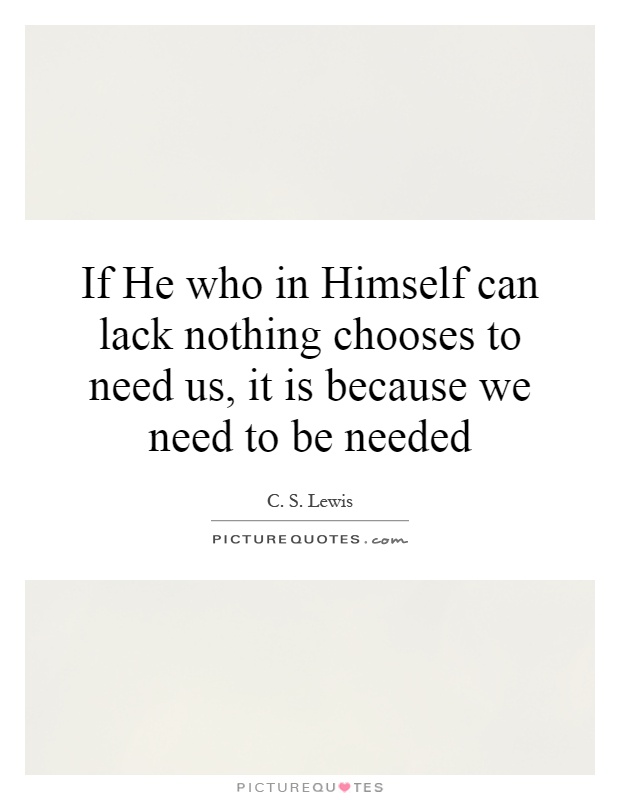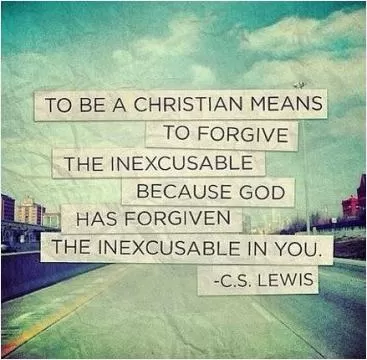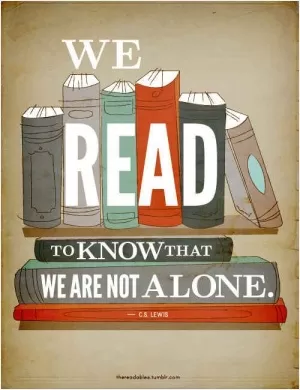If He who in Himself can lack nothing chooses to need us, it is because we need to be needed

If He who in Himself can lack nothing chooses to need us, it is because we need to be needed
C.S. Lewis, a renowned Christian author and theologian, often explored the complexities of human nature and the relationship between humanity and God in his works. One of his most profound insights is captured in the statement, “If He who in Himself can lack nothing chooses to need us, it is because we need to be needed.” This statement encapsulates the idea that God, who is all-powerful and self-sufficient, still desires a relationship with humanity because it fulfills a deep need within us.In his book, "The Four Loves," Lewis delves into the concept of love and the different forms it can take. He argues that there are four distinct types of love: affection, friendship, eros, and charity. Each of these loves fulfills a different aspect of human nature and relationships. When it comes to the love between God and humanity, Lewis suggests that it is a form of charity, or agape love, which is the highest form of love that seeks the good of the other without expecting anything in return.
God’s decision to need us, according to Lewis, is not a sign of weakness or inadequacy on His part. Rather, it is a reflection of His infinite love and desire for a deep and meaningful relationship with His creation. By choosing to need us, God invites us into a partnership where we can experience the joy of serving Him and fulfilling His purposes on earth.
Furthermore, Lewis suggests that our need to be needed by God is a fundamental aspect of our humanity. We are created with a longing for connection and purpose, and God’s decision to involve us in His divine plan satisfies that need on a profound level. When we recognize that God values and relies on us, it gives our lives meaning and significance.












 Friendship Quotes
Friendship Quotes Love Quotes
Love Quotes Life Quotes
Life Quotes Funny Quotes
Funny Quotes Motivational Quotes
Motivational Quotes Inspirational Quotes
Inspirational Quotes